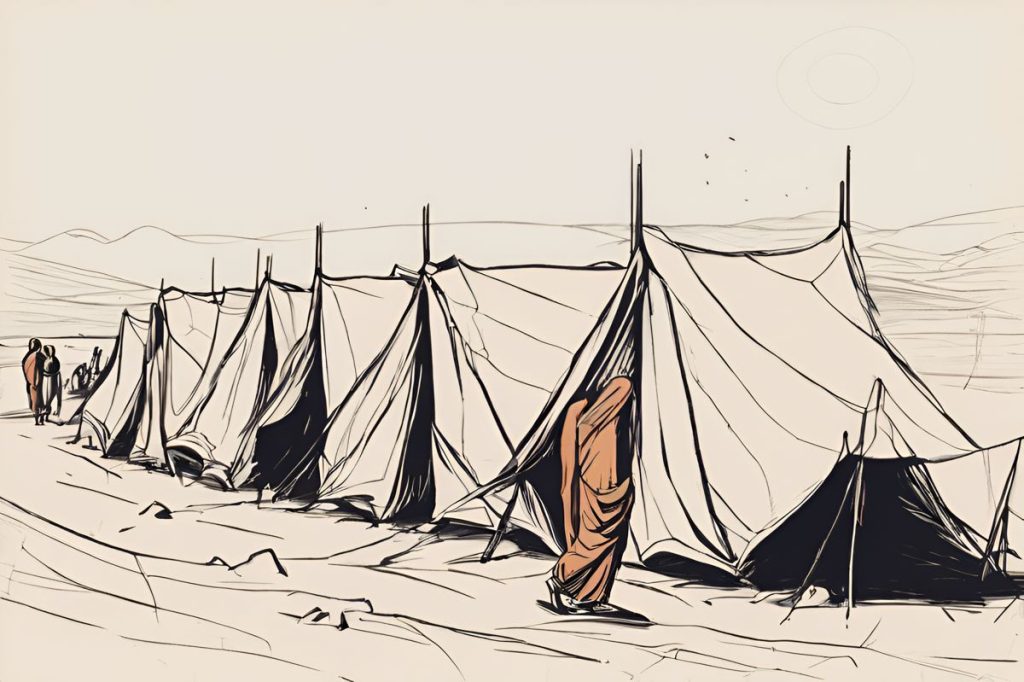The EU Commission is firm on upholding migrants’ right to asylum, including those stuck in Cyprus’ buffer zone. Despite challenges, efforts are ongoing to ensure the welfare of these individuals while managing migration effectively.
What is the EU Commission’s stance on the right to asylum for migrants in the buffer zone?
The EU Commission asserts that the right to asylum is non-negotiable under EU law and applies to all individuals seeking international protection, including those in transit zones like Cyprus’ buffer zone. Despite Cyprus’ resistance, the Commission continues to work towards ensuring that migrants’ rights and welfare are upheld, while managing migration effectively.
Struggle for Asylum and Basic Needs
The predicament of the migrants trapped in the Green Line, the UN-patrolled buffer zone in Cyprus, has caught the attention of the European Union. The EU Commission, acknowledging the severity of the situation, is actively engaged in understanding and addressing the plight of these individuals. This comes amid stark warnings of extreme weather conditions that add another layer of urgency to the migrant’s already dire circumstances.
The living situation for the 25 individuals, including families and children, has been far from adequate, with their health and safety at risk. Complaints of snakes and other hazards have heightened fear amongst the migrants. Their makeshift shelters, consisting of tents fraught with dust, coupled with the scorching temperatures exceeding 40C, paint a grim picture of their daily struggles.
Health and Safety Under Siege
Emilia Strovolidou, a representative from the UNHCR, the UN’s refugee agency, has expressed deep concern over the migrants’ prolonged exposure to these conditions. Basic hygiene is a luxury they cannot afford, with only jars of water available for washing and dental care. The presence of children in such an environment has only intensified the call for immediate action.
The EU Commission’s spokesperson has made it clear that the right to asylum is non-negotiable under EU law. It guarantees that anyone can seek international protection, whether at the borders or within transit zones. Cyprus, however, has been resistant, utilizing the Green Line regulation as its defense against allowing migrants access to asylum proceedings. This has sparked a debate over the legality of such refusals under both international and EU statutes.
Tensions Over Migration Policies
The UNHCR has not shied away from accusing the Cypriot government of engaging in pushbacks, an allegation staunchly refuted by the latter. Nicholas Ioannides, the Deputy Immigration Minister, has cited the government’s rigid stance on migration as the rationale behind their refusal to admit migrants from the buffer zone, fearing it would be transformed into a thoroughfare for irregular migration.
Despite these contentious policies, the EU Commission has not withdrawn its support. It continues to work closely with Cyprus to manage the challenges posed by irregular arrivals, especially during periods of exceptionally high volumes. The Commission emphasizes the execution of the EU Action Plan for the Eastern Mediterranean, which comprises specific operational measures aimed at bolstering migration management.
A Call for Comprehensive Action
The situation at the Green Line serves as a reminder of the complex and often painful intersection of geopolitics, human rights, and humanitarian responsibility. As the EU Commission and the Cypriot government navigate the delicate balance between border security and the obligations of asylum, the lives and welfare of the ‘buffer zone migrants’ hang in the balance. It underscores the need for comprehensive solutions that uphold the dignity and rights of individuals seeking refuge, while addressing the legitimate concerns of national and regional security.
What is the EU Commission’s stance on the right to asylum for migrants in the buffer zone?
The EU Commission asserts that the right to asylum is non-negotiable under EU law and applies to all individuals seeking international protection, including those in transit zones like Cyprus’ buffer zone. Despite Cyprus’ resistance, the Commission continues to work towards ensuring that migrants’ rights and welfare are upheld, while managing migration effectively.
What are the living conditions like for migrants stuck in Cyprus’ buffer zone?
The migrants stuck in Cyprus’ buffer zone are facing severe challenges, including inadequate shelter, lack of basic hygiene facilities, and extreme weather conditions. The living situation is far from adequate, with families and children at risk due to health and safety concerns. The migrants are living in makeshift shelters made of tents, facing hazards like snakes and scorching temperatures exceeding 40C.
Are there accusations of pushbacks and refusals of entry from the Cypriot government?
The UNHCR has accused the Cypriot government of engaging in pushbacks, which the government has vehemently denied. The government’s strict migration policies have led to refusals of entry for migrants from the buffer zone, citing concerns about irregular migration. This has sparked a debate over the legality of such refusals under international and EU statutes.
How is the EU Commission working to address the challenges posed by irregular arrivals in Cyprus?
Despite tensions over migration policies, the EU Commission continues to support Cyprus in managing irregular arrivals, especially during periods of high volumes. The Commission emphasizes the implementation of the EU Action Plan for the Eastern Mediterranean, which includes specific operational measures to strengthen migration management. This ongoing collaboration highlights the need for comprehensive solutions that balance border security with the obligations of asylum and human rights.

